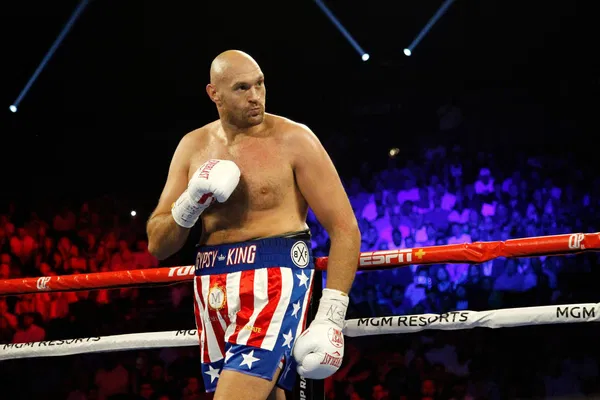Tyson Fury’s decision to weigh in at 281 pounds for his rematch against Oleksandr Usyk last week has sparked significant debate among boxing enthusiasts. Many believe that Fury’s increased weight—a nearly 20-pound jump from their first historic clash earlier this year—played a pivotal role in his loss. Critics argue that the extra mass hindered his agility, particularly in the later rounds of the fight. However, UFC analyst Chael Sonnen provided a nuanced perspective on Fury’s weight strategy on his YouTube channel, highlighting historical context to support the decision.

Sonnen acknowledged the rematch was a compelling contest, but he noted an important correction from combat sports journalist Kevin Iole. According to Iole, this wasn’t the first time Fury had intentionally gained significant weight for a rematch. For instance, when Fury faced Deontay Wilder for the first time in 2018, he weighed 256 pounds and fought to a draw. In their rematch, however, Fury entered the ring at 273 pounds, nearly 20 pounds heavier. Sonnen explained that Fury’s rationale was tactical: the added weight allowed him to absorb punches better and adopt a more aggressive, bullying style in the ring. This strategy proved effective, as Fury decisively dominated Wilder in their second fight.

In the rematch with Wilder, Fury abandoned his defensive, hit-and-move approach in favor of an all-offensive strategy. His added weight enabled him to lean on Wilder during clinches, exhausting the American, whose slender legs struggled to support the extra pressure. This tactical adjustment led to Fury’s resounding victory.
However, Sonnen pointed out that Fury’s attempt to replicate this strategy against Usyk did not yield the same results. The critical difference lies in Usyk’s technical brilliance and superior Fight IQ. Unlike Wilder, who has been described as a “one-trick pony” relying on his devastating right hand, Usyk is a well-rounded, highly skilled boxer. Wilder’s game plan has traditionally revolved around landing his powerful right hand, a strategy encapsulated in his famous statement: “These guys have to be perfect for 12 rounds; I only need to be perfect for two seconds.”
In contrast, Usyk’s versatility and ring intelligence allowed him to anticipate Fury’s approach and counter it effectively. While Fury’s weight strategy worked against Wilder, it failed against the Ukrainian, who was able to neutralize Fury’s attempts to use his size as an advantage.
Ultimately, Sonnen argued that Fury’s decision to bulk up for the rematch wasn’t inherently flawed—it simply didn’t work against a fighter as skilled and adaptable as Usyk. The fight highlighted Usyk’s ability to outmaneuver and outthink his opponent, demonstrating why he remains one of the best technical boxers in the sport today. This raises an intriguing debate about whether Fury’s weight gamble backfired or whether it was simply Usyk’s brilliance that secured his victory.